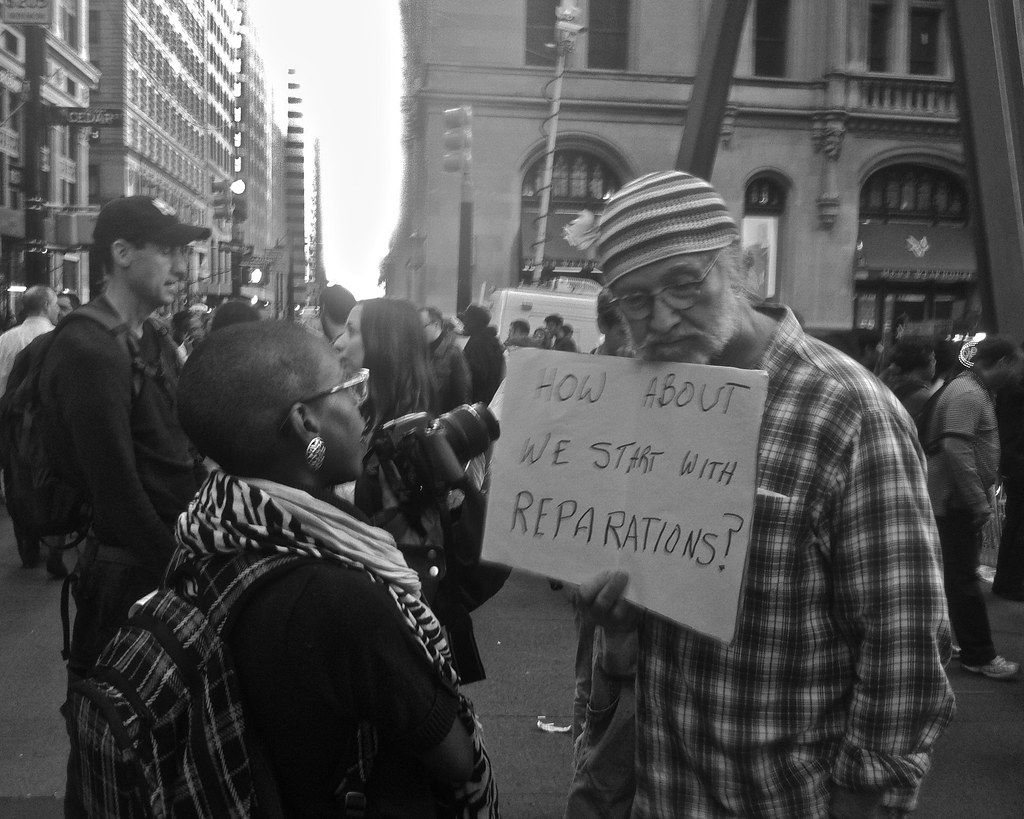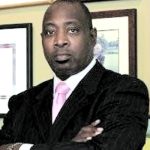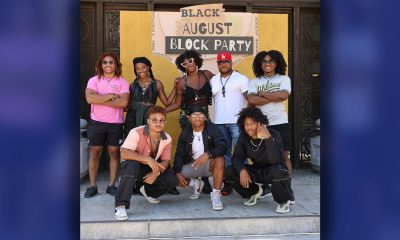Economics
Reparations For Unjust Enrichment

God on Wall Street

Rev. Curtis O. Robinson, Sr.
On November 20, 1866, General Oliver Otis Howard, along with 10 other people, played a key role in the founding of Howard University.
General Howard understood that former slaves would need opportunities that only a good education could afford them, if they were to succeed in the new America. But it really wasn’t a new America, as angry whites continued their evil assault upon blacks. When blacks tried to educate themselves in newly formed schools by abolitionists such as General Howard, fires erupted and burned them down. When blacks tried to seek sanctuary within churches for educational purposes, fires erupted and the churches burned down.
I read in Wikipedia, the online encyclopedia, where Howard said, “The opposition to Negro education made itself felt everywhere in a combination not to allow the freed men any room or building in which a school might be taught. In 1865, 1866, and 1867, mobs of the baser classes at intervals and in all parts of the South occasionally burned school buildings and churches used as schools, flogged teachers or drove them away, and in a number of instances murdered them.”
In addition to being the namesake of one of the tremendous institutions of higher learning in America, Howard was also instrumental in providing leadership for the Freedman’s Bureau. I read in History.com that, “The Freedmen’s Bureau, formally known as the Bureau of Refugees, Freedmen and Abandoned Lands, was established in 1865 by Congress to help millions of former Black slaves and poor whites in the South in the aftermath of the Civil War.” The Freedmen’s Bureau could be a major component in the passing of legislation that authorizes the U.S. government to make material and spiritual advancements towards making reparations a reality. According to Encyclopedia.com, “FORTY ACRES AND A MULE was a phrase echoed throughout the South in the aftermath of the Civil War, asserting the right of newly freed African Americans to redistributed lands—particularly those plantations confiscated by U.S. troops during the war—as compensation for unpaid labor during slavery.”
However, with more research, we may be able to decipher the code that could lead to liberty. For instance, “unjust enrichment,” is a barometer for proving the need for reparations. There are three elements that must be present; the defendant received a benefit; at the plaintiff’s expense; and, under circumstances that would make it unjust for the defendant to retain the benefit without commensurate compensation.” It’s called “Unjust Enrichment,” and it’s the law!
Activism
Oakland Post: Week of January 1 – 7, 2025
The printed Weekly Edition of the Oakland Post: Week of January 1 – 7, 2025

To enlarge your view of this issue, use the slider, magnifying glass icon or full page icon in the lower right corner of the browser window.
Activism
Oakland Post: Week of December 25 – 31, 2024
The printed Weekly Edition of the Oakland Post: Week of December 25 – 31, 2024

To enlarge your view of this issue, use the slider, magnifying glass icon or full page icon in the lower right corner of the browser window.
Activism
2024 in Review: 7 Questions for Outgoing Stockton Mayor Kevin Lincoln
Lincoln’s decision to run for mayor stemmed from his love of people and his desire to serve his city. He prioritized resolving issues, including homelessness and public safety, among others. Lincoln, a Republican, will transition out of his role as mayor on Dec. 31, after an unsuccessful campaign to represent the 9th Congressional District.

By Edward Henderson
California Black Media
Born in Stockton, Mayor Kevin Lincoln says his Army upbringing inspired him to serve others.
Lincoln joined the United States Marine Corps in 2001 and was later assigned to Marine One, serving during President George W. Bush’s administration.
Following his military service, Lincoln worked for one of the nation’s top private security companies for eight years in Silicon Valley. In 2013, he resigned from his corporate position to give back to his community in Stockton through full-time ministry at a local church.
Lincoln’s decision to run for mayor stemmed from his love of people and his desire to serve his city. He prioritized resolving issues, including homelessness and public safety, among others.
Lincoln, a Republican, will transition out of his role as mayor on Dec. 31, after an unsuccessful campaign to represent the 9th Congressional District.
Recently, California Black Media (CBM) spoke with Lincoln. He reflected on his accomplishments this year and his goals moving forward.
Responses have been edited for length and clarity.
Looking back at 2024, what stands out to you as your most important achievement and why?
What I prioritize for our city council is our youth. They are the future — not only our city, but this region as a whole.
We were able to invest over $6 million in youth programming and workforce development, and partner with 14 different community-based organizations. We were able to employ over 600 young people through the city of Stockton. We launched even our first ever summer jobs program for the city of Stockton.
How did your leadership and investments contribute to improving the lives of Black Californians?
It’s about giving people a seat at the table, and not necessarily waiting for people to come to me, but me going to the community, making myself accessible, meeting our community at the point of their need, where they’re at.
What frustrated you the most over the last year?
It’s politics. Because unfortunately, there’s politics in everything. And I say politics impedes progress. You can have a policy, a solution that may not necessarily be 100% perfect. But it’s a good solution for everybody. But because we allow politics to get in the way based off our personal ideologies, oftentimes we can miss opportunities to make an impact for the benefit of the whole.
What inspired you the most over the last year?
My biggest inspiration has been the community and our ability to work together. What’s unique about Stockton, one in 20 jobs are nonprofit jobs in the city of Stockton and even San Joaquin County.
What is one lesson you learned in 2024 that will inform your decision-making next year?
To stay focused. In politics, there’s a lot of opportunity for distractions. There are a lot of influences from the outside — good, bad and indifferent. It’s important to stay focused, have a clear vision, and be committed to that vision.
In one word, what is the biggest challenge Black Californians face?
Economics. When the economy is not healthy, when we’re not thriving, we’re limited. Opportunities are limited.
What is the goal you want to achieve most in 2025?
I just want to continue to be a servant leader and serve our community in whatever capacity I am in.
-

 Activism3 weeks ago
Activism3 weeks agoBooks for Ghana
-

 Arts and Culture3 weeks ago
Arts and Culture3 weeks agoPromise Marks Performs Songs of Etta James in One-Woman Show, “A Sunday Kind of Love” at the Black Repertory Theater in Berkeley
-

 Bay Area2 weeks ago
Bay Area2 weeks agoGlydways Breaking Ground on 14-Acre Demonstration Facility at Hilltop Mall
-

 Activism3 weeks ago
Activism3 weeks ago‘Donald Trump Is Not a God:’ Rep. Bennie Thompson Blasts Trump’s Call to Jail Him
-

 Activism2 weeks ago
Activism2 weeks agoLiving His Legacy: The Late Oscar Wright’s “Village” Vows to Inherit Activist’s Commitment to Education
-

 Alameda County2 weeks ago
Alameda County2 weeks agoAC Transit Holiday Bus Offering Free Rides Since 1963
-

 Activism4 weeks ago
Activism4 weeks agoOakland Post: Week of December 11 – 17, 2024
-

 #NNPA BlackPress3 weeks ago
#NNPA BlackPress3 weeks agoCalifornia, Districts Try to Recruit and Retain Black Teachers; Advocates Say More Should Be Done






















































